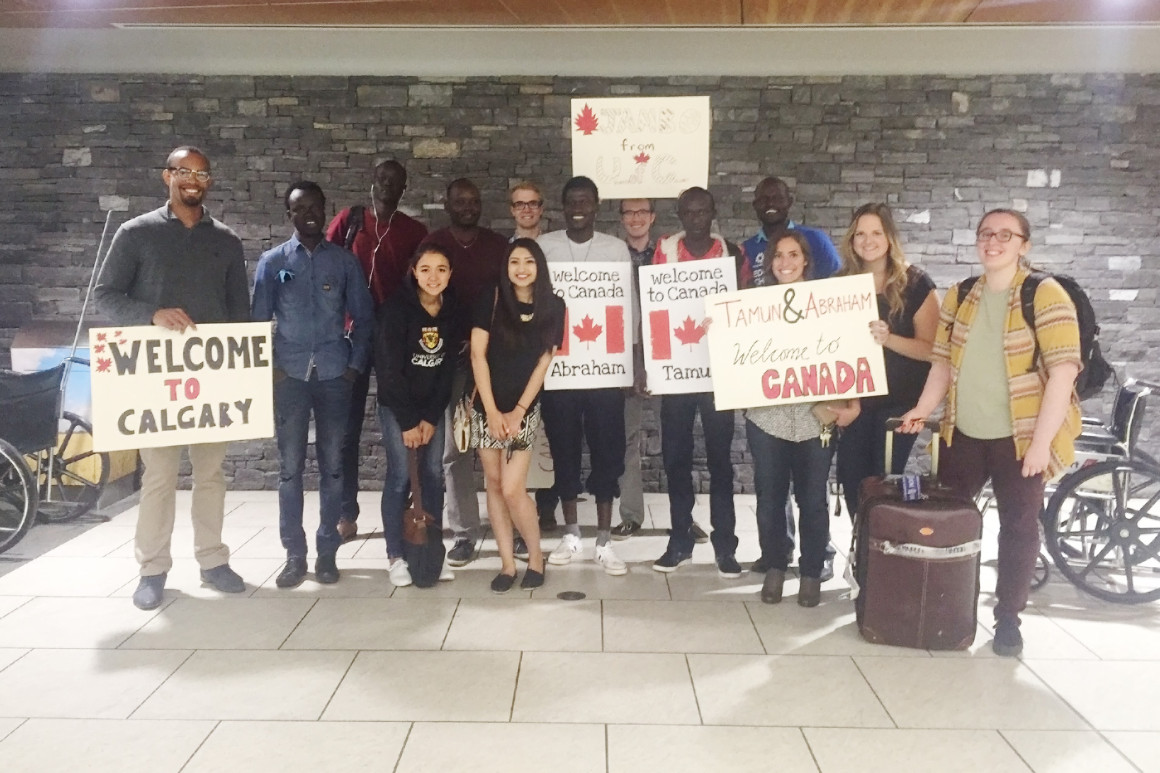
Refugee student program welcomes new students to the University of Calgary
By Tahiya Jubaydah, October 13 2015 —
Refugees are currently a prominent political issue due to ongoing conflicts in Syria and Iraq. The Students’ Union has partnered with the World University Service of Canada (WUSC) for nearly 30 years to bring refugees to study at the University of Calgary.
The SU assists refugee students with financing, schooling and adjusting to Canadian life. A levy was established by the SU in 1986 to fund the program.
Vice-president operations and finance Sarah Pousette said many students aren’t aware of the program.
“They’re getting an amazing opportunity and people don’t know about it because they’re fitting into the campus so well,” Pousette said.
The U of C supports the program by waiving tuition and the costs of textbooks and accommodation for incoming first-year refugee students.
Poussette said she has learned a lot from her involvement with the program.
“Even though they have different cultures, they still like sending text messages. They still like watching YouTube. They like dancing to music in their dorm rooms,” Pousette said.
Second-year nursing student Jeremiah Niyonzima came to the U of C as part of the refugee student program.
Niyonzima’s family fled the Rwandan genocide when he was eight. He lived in a refugee camp in Malawi before coming to Canada.
The camp where Niyonzima lived in Malawi was segregated by nationality. He was struck by Canada’s multiculturalism.
“No matter the fact that everyone is from different cultures, you find yourself living together and then working together,” Niyonzima said.
One of the questions for WUSC’s selection process asked Niyonzima how he would deal with a roommate with a different culture.
”Having a different culture doesn’t mean you have to be against your roommates because they are of a different culture. It’s just a matter of understanding them. It’s just a matter of respecting them,” Niyonzima said.
Co-chair of WUSC’s Calgary chapter Aysha Chaudry said the situation in Syria casts a spotlight on refugees. But she believes it is important to focus on more than one region.
“There are refugees all around the world that are currently seeking asylum from things such as religious wars or the threat of child recruitment from the military,” Chaudry said. “You can’t put one life over another because all of them are facing different problems in their countries they’re trying to escape from.”
Chaudry stressed that when the students arrive on Canadian campuses, they are no longer refugees.
“When they’re here through WUSC, they become permanent residents,” Chaudry said. “And in four years they can apply for their citizenship.”
The program has brought 29 refugee students from Kenya, Rwanda, Sudan, South Africa, Malawi and Thailand to the U of C.
Since WUSC started the program in 1978, it has sponsored over 1,400 refugee students in collaboration with 61 universities and colleges across the country.
This year’s refugee students arrived in Calgary on Sept. 10. Abraham Achuil and Tamun Ahas Ras come from a refugee camp in Kenya after fleeing violence in their home country of Sudan.
